‘We can’t dally’: How lay leaders are advocating for pubmedia amid federal funding threats
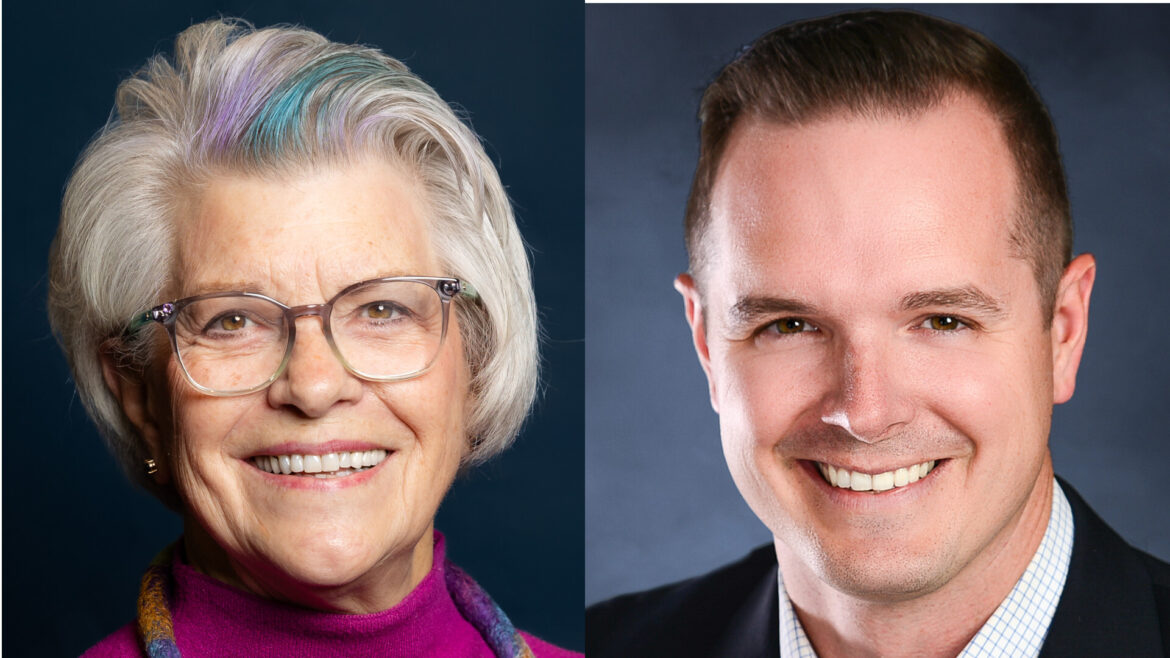
Diane Tilstra and Garrett King
As public media faces threats to its federal funding, lay leaders have been engaged in advocacy, including meeting with their congressional representatives.
Among them are Garrett King, board president of Friends of OETA in Oklahoma, and Diane Tilstra, president of the KBTC PBS Association in Tacoma, Wash. King is also a trustee for America’s Public Television Stations and chair of its legislative policy and advocacy committee.
Current spoke with King and Tilstra in April about their experiences with public media, their outlooks on federal support, and the work of OETA and KBTC.
The conversations have been edited and condensed for length and clarity.
Garrett King, president of the board of directors of Friends of OETA in Oklahoma
Current: What have been your experiences with public media that made a big difference in your life?
King: I grew up in very rural western Oklahoma, a son of a public school teacher and a peanut farmer. In those days, the early nineties, there wasn’t much childcare at all. Like a lot of kids, I was cared for by my grandmother, who had an eighth-grade education and cleaned other people’s houses for a living. She took me with her to those jobs. She would plant me in front of the television and insist on OETA, our local PBS station. That laid a really strong framework for my life.
It was all Mister Rogers’ Neighborhood and Sesame Street. I started watching William F. Buckley’s Firing Line at a really young age. I got exposed to the concept of ideas and give and take early on.
OETA was an essential part of my upbringing and my education. From a young age, it really was a classroom for me. We still call OETA “Oklahoma’s biggest classroom.” I’m 39 years old, but I’m kind of a walking, talking billboard of what that station was founded to instill in our state.
Current: When APTS recognized you with its 2025 David J. Brugger Community Leader Award, it credited you for advocacy that preserved OETA’s state funding and for being “unwavering” in making a case for federal funding to members of Oklahoma’s congressional delegation. How does public media advocacy in the state legislature compare to Congress?
King: It may not be apples to apples, but they’re certainly in the same space. For public media and particularly PBS, in my view, the facts are pretty clear. There’s a long-standing bipartisan consensus in the legislative branch, both at the federal level and in Oklahoma, for the place of PBS stations in our society. In so many congressional districts, these stations are the last truly local media. They’re also the bedrock of really irreplaceable public safety infrastructure in those districts.
Oftentimes, you’ll hear rhetoric coming out of the executive branch and the legislative branch. But no one can deny the benefits, the incredible return on investment that these public-private partnerships represent. That’s why you see legislators, on a bipartisan basis, continue to support it. Certainly in Oklahoma, OETA is 70-plus years old, and is one of the easiest things for both chambers and both parties to come together on.
Current: Which members of Congress did you meet with during the APTS Public Media Summit in February, and what can you share from those meetings?
King: We met with Congresswoman Stephanie Bice, who represents Oklahoma City and is a great champion of OETA. Congressman Frank Lucas, who represents the third congressional district and is not only a longtime champion of OETA, during his decades long tenure in Congress, but was a champion of OETA during his time in the state legislature. Congressman Tom Cole’s office, of course, was gracious and welcoming and supportive as always.
It was a day when three different groups were trying to meet with Sen. Markwayne Mullen. He made time to meet with us and express his appreciation for OETA and the role that the station plays in the state.
I think OETA remains an easy ‘yes’ for the Oklahoma congressional delegation as well as the Oklahoma legislature.
Current: What’s your outlook on preserving federal support for public media?
King: I get that past performance is not indicative of future results, but ultimately, I would point you to our track record. As former Congressman Blumenauer has said, “Against all odds, these stations persevere and this mission perseveres.”
Public media perseveres because, to quote the great CPB Chair Ruby Calvert, there is “nothing more American” than PBS — and there’s nothing more American than these stations. They are local and able to tailor their services to the needs of their communities in this vast and very complex country. They provide very basic functions that otherwise would not be provided for — public education, public safety and civic engagement, a common space where we can all come together.
Current: You’re president of the Friends of the OETA board. How important is federal support to OETA and the work it does?
King: Three-legged stools don’t stand without all three legs. That’s the message we drive home when we say this is a public-private partnership. When we’re talking about the public component, you cannot do what we do without the work and resources provided by the Corporation for Public Broadcasting and Ready to Learn.
Current: What are some examples of OETA content or projects that stand out to you as essential services to your community?
King: OETA is the only statewide transmission network for the Warning Alert and Response system. WARN isn’t just alerts from Oklahoma Emergency Management and the county governments that use the network. Its alerts are used by the National Guard. They’re used by Fort Sill in Lawton, Okla., and by Tinker Air Force Base in Midwest City, Okla. Without that network, that emergency information transmission does not happen in our state. It is the bedrock of emergency information dissemination in Oklahoma.
To bring it a little closer to home, there is a huge series that’s part of CPB’s American Graduate: Jobs Explained project where we’re teaching young people in Oklahoma what it is to work in aerospace and defense, which is the second largest sector in our state. We are a workforce-starved state, so we’re desperately trying to secure more workers in critical occupations. Aerospace and defense are at the top of the list. Well, OETA is blazing a trail in that.
We also are just finishing — thanks to private, public and state support — a complete modernization of the OETA tower network. All 18 towers, including our high-power transmitters and our lower-power transponders, have been modernized. That network now has a 25-year lease on life.
Again, we couldn’t have done it without federal support, state support and our private funding. From a public safety and information distribution standpoint, that leaves Oklahomans far better served for another quarter century than they were seven years ago.
Diane Tilstra, president of the KBTC PBS Association in Tacoma, Wash.
Current: What have been your experiences with public media that made a big difference in your life?
Tilstra: Public media has been part of the fabric of my life since my children started watching Sesame Street. It’s just been part of my family. You’ve got to be familiar with these characters on Sesame Street because they’ve become icons and we reference them all the time.
Current: How did those experiences lead you to become a supporter and advocate for public media?
Tilstra: Watching how early childhood education on PBS affected my kids and kids that I knew has made such a difference in my evolution and my family — even to this day, now that I’ve got grandkids. It wasn’t hard to transition to a more active advocate as I’ve retired. I can give back now.
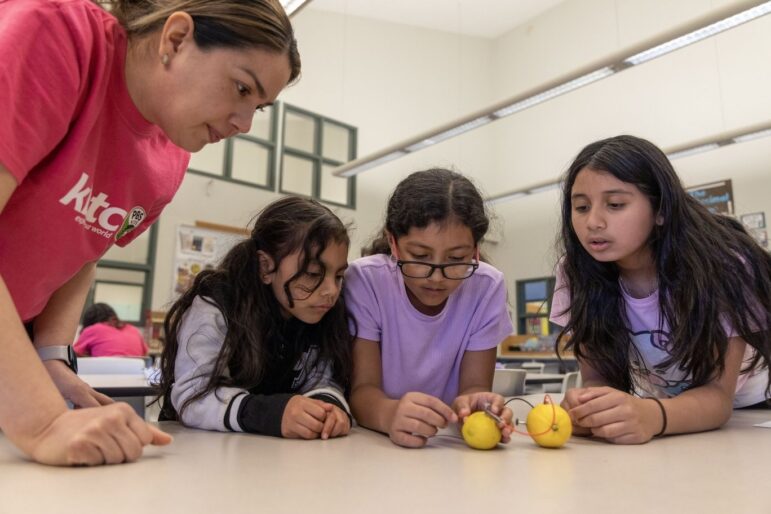
Current: Going to the public media summit in February, which members of Congress did you meet with and what can you share from those meetings?
Tilstra: We met with all of our contingent from western Washington. All the meetings went very well. I was really proud of the fact that I was there as an advocate, not as a paid person that works for public broadcasting. Being there with another gentleman from Spokane, our voices really meant something.
We didn’t have to sell public media to our representatives from this part of the state. They all seemed very positive about public broadcasting, National Public Radio, early learning opportunities for people in their communities, and the emergency warning system. They were all knowledgeable.
I was concerned about legislators from eastern Washington who represent constituencies that will possibly follow this current administration’s policies. We were asked to help find people in eastern Washington who would then make calls to the legislators in their districts. That’s what I’ve been doing. I’ve been telling people to stop screaming and yelling at the legislators, but ask them what they can do to help. Right now it’s a heavy lift. Everybody needs to be involved.
Current: Following the House DOGE subcommittee hearing on public media and reports of the Trump administration’s proposal to completely rescind CPB’s funding, what is your outlook on preserving federal support for public media?
Tilstra: Personally, I think it’s in jeopardy. It’s a crisis, and we can’t dally. We must be in touch with people. So I’m sending postcards to everyone I can think of to ask them to please support public media’s funding and to avoid defunding us.
I’m trying to keep the hammer down and keep it full speed ahead, informing people of what they’re potentially going to lose. Right now, none of the public broadcast stations are able to really project what they’re going to need.
Here at the PBS station KBTC, they are having meetings to talk about what they will do if and when those funds are rescinded.
Current: You’re president of the KBTC Association Board. How important is federal support to KBTC in the work that you’re doing?
Tilstra: It would impact the station quite a lot. It would mean a loss of jobs. A lot of the programming that the association board funds will be retracted or diminished somewhat. Those programs serve some of our most vulnerable communities. It’s really a sad thing to have to do.
Current: Can you give some recent examples of KBTC content or projects that stand out to you as those essential services to your community?
Tilstra: We’ve been doing a great deal of work within lower-income neighborhoods, gathering parents and children to teach them how to utilize early learning education programming. We’re doing that in a bilingual fashion so there’s more opportunity to interact with families and kids when it comes to early learning at home.
There’s been really good participation, lots of families coming out, parents especially. They talk about how much it has improved their children’s grades when they get into school and how much it’s improved their ability to be better teachers to their children.
Current: Is your board actively looking at how to prepare for CPB funding being cut?
Tilstra: That’s going to be the highlight of our retreat in June. Of all the topics that we could address, that’s going to be top of the list. How can the board association with the monies that we have, if necessary, do a heavy lift if the station requires it?


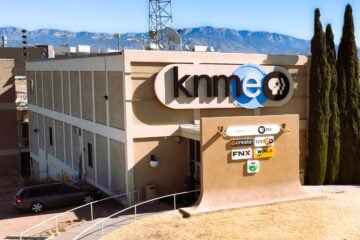
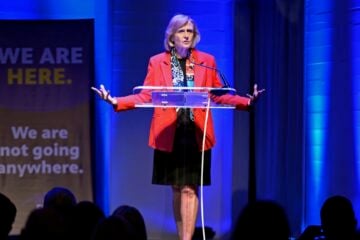
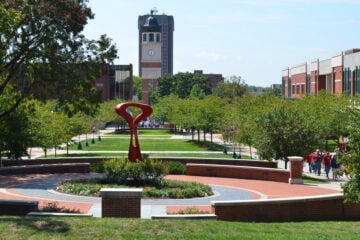


Thank you for a great article! DT